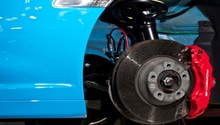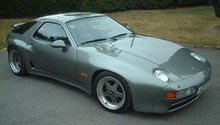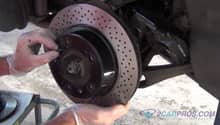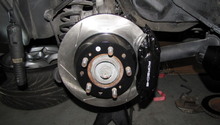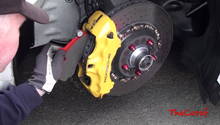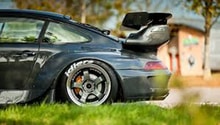Porsche 993: Brake Modifications
Brake modifications can be a more conservative option when spending money on your car. Learn about some popular choices here.
This article applies to the Porsche 993 (1993-1998).
Some of the more subtle and overlooked modifications on any vehicle are those that may not be easily noticed. Generally, the first thing someone will ask about would be, "What's under the hood?" Wheels and tires will get noticed, but brakes? Maybe not. Here are a few options to consider for brake modifications and upgrades.
Brake Modifications
Big Brake Kit
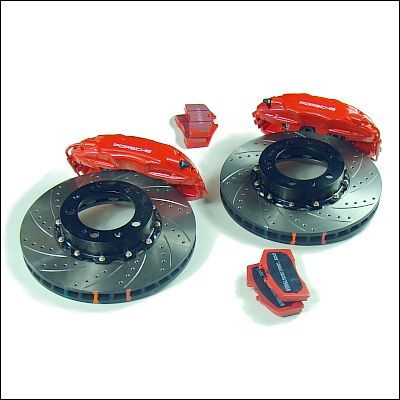
DIY Cost – $2,000 - $4,000+
Professional Cost – Parts and labor: $2,800 - $5,000+, depending on the installation location.
Skill Level – Moderate; There are quite a few steps involved, including bleeding the new brake lines. Can be done at home with the right equipment.
The debate on the big brakes will likely rage until the end of time. Many argue that unless you are running your Porsche on the track, they are a heavier upgrade to perfectly good brakes and rotors. Others simply like them because they look good and "damn the cost." Most would agree that they do have a great look. So, the question becomes personal. Who cares about the cost when they look great? Or, they could be a waste of money for something you'll never see full potential of use on.
A less expensive alternative is to take the brakes from a 993 Turbo and fit them to the standard car. The 993 Turbo brakes are a very heavy-duty set up from the factory and can handle a lot of abuse, while adding some of the "bling" factor associated with big brake kits.
Brake Rotors
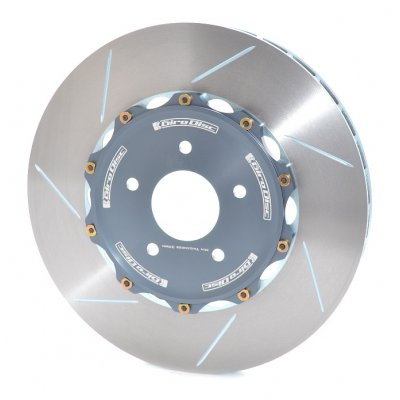
DIY Cost – $200 to over $1,000+
Professional Cost – $400 - $2,000+ for parts and labor
Skill Level – Moderate; Provided you have all the necessary tools, this can be a straightforward swap out. Not as challenging as a full brake replacement.
There are many options when it comes to swapping out your rotors. From cross-drilled to slotted options, and even cross-drilled AND slotted, there are many manufacturers to choose from, and each one may have several lines to choose from. Depending on what you are looking to accomplish while driving or racing, spending more or less money can be easy to do. There is nearly no wrong answer for each individual and their car.
If you do plan on tracking your P-car, there are two trains of thought. The first stipulates that you buy cheaper blank rotors, because they are a disposable item once you begin tracking frequently, with racers swapping in new pads and rotors annually.
The other option is to invest in high-dollar rotors that last longer and offer superior performance. Pictured is a costly two-piece rotor by GiroDisc. A two-piece rotor is much lighter than a conventional rotor, and the "ring" can be replaced independently, making the item serviceable versus a standard one-piece rotor.
Performance Brake Pads
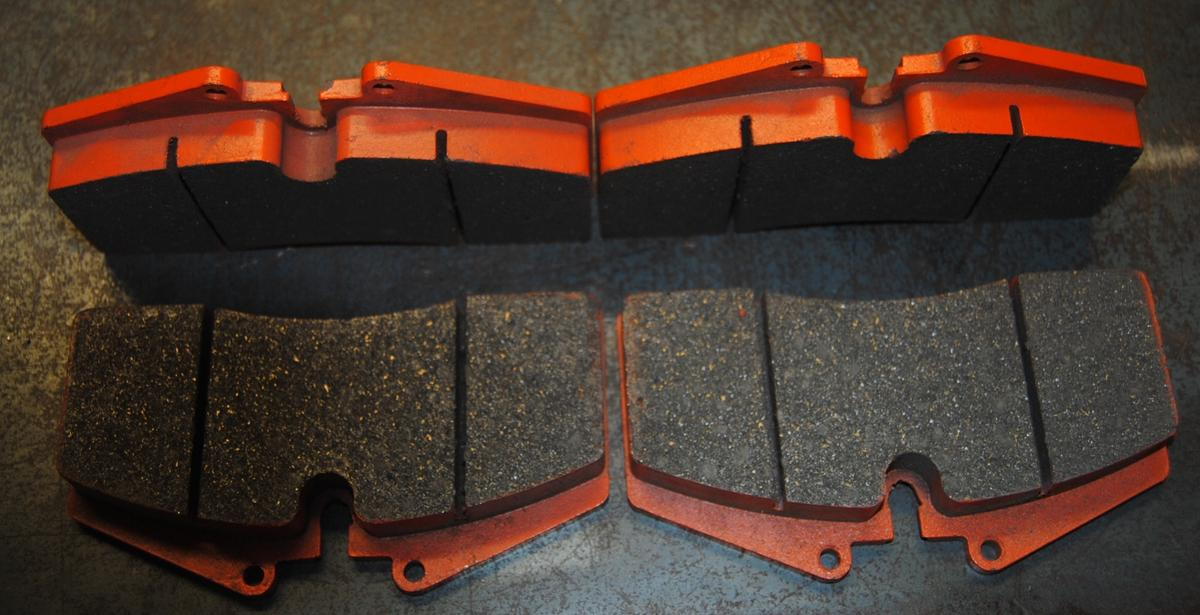
DIY Cost – $100 - $400+
Professional Cost – $300 - $800 for parts and labor
Skill Level – Moderate; Beyond having the correct tools, you'll need to be able to tackle a brake bleed in some cases.
This is clearly not the sexy performance upgrade most people think about, but once again, do not overlook the smallest of details when it comes to braking. Regardless of whether or not you are going to take your 993 on the track for a racing experience, being able to stop quickly under any circumstance is important. High-performance cars need to be able to stop fast when running at higher speeds, so don't skimp on your brake pads or you may end up regretting it.
There are specific brands of brake pads catered towards club racing and track days. These pads offer consistent performance, and will not fade once they get hot. Lesser pads can and will crumble; shattering a pair of brake pads into pieces isn't totally uncommon. If you're getting serious on the track, recommended brakes include the HAWK DTC series of brake pads and the CARBOTECH XP series of pads, among others. These pads will take all of the abuse you can throw at them.
Pro Tip
Your braking system is only as good as the weakest link. More overlooked than all of the components listed above is the brake fluid! Porsche recommends servicing the fluid annually if the car is driven aggressively. That interval can be shortened further if you plan on tracking the car regularly. Investing in high-temp resistant brake fluid can help the braking system work to its potential. If you boil the brake fluid, you may lose pedal pressure, with the brake pedal sinking to the floor and braking performance being near non-existent.
Related Discussions
- 993 Brake Pad Reviews - Rennlist.com
- How to "Bed-In" New Pads - Rennlist.com
- Brakes for the Track - Rennlist.com

